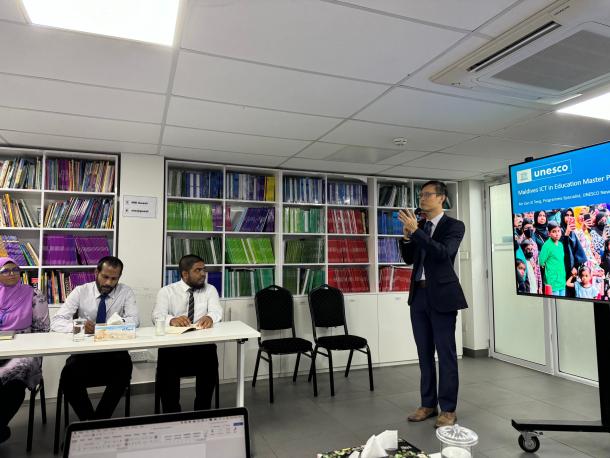
UNESCO is partnering with the Government of the Maldives to review the Maldives’ Information and Communication Technology in Education Master Plan 2 for 2021-2024 and develop a new national digital learning policy.
The Maldives, a small island nation, faces significant challenges and opportunities in its digital transformation and climate crisis. The review process involved over 1,360 teachers, 79 schools, and 50 stakeholders from various government institutions, schools, universities, and companies.
The review aims to assess the outcomes of the Master Plan, identify key priorities, and synthesize lessons learned for the design of the next version.
Dr Abdul Latheef Mohamed Minister of State for Education, Government of the Maldives, said: “We can link our current initiatives and the ongoing transformation in the digital era. Taking into consideration the digital innovations, we have to make the necessary changes in the new master plan.”
UNESCO Programme Specialist Jian Xi Teng presented an overview of the review process, highlighting the key educational issues that technology should address. He emphasized the need for a learner-centered approach that engages all stakeholders and focuses on lifelong learning.
Dr Ahmed Mohamed, Minister of State for Education, recognized that “one of the main areas [for the Maldives] is digitalization and digital education and I believe that this ICT master plan is going to be one of the blueprints for us to implement our digital education agenda for the coming years.”
UNESCO’s continued support will equip the Maldives with the necessary tools and knowledge to transform its education system through the integration of technology in a learner-centered lifelong learning approach.
Image: UNESCO New Delhi
Swanwick House, 22 Towcester Road, Old Stratford, Milton Keynes, MK19 6AQ, UK
© 2025 Project Management Global. All rights reserved | Privacy Policy